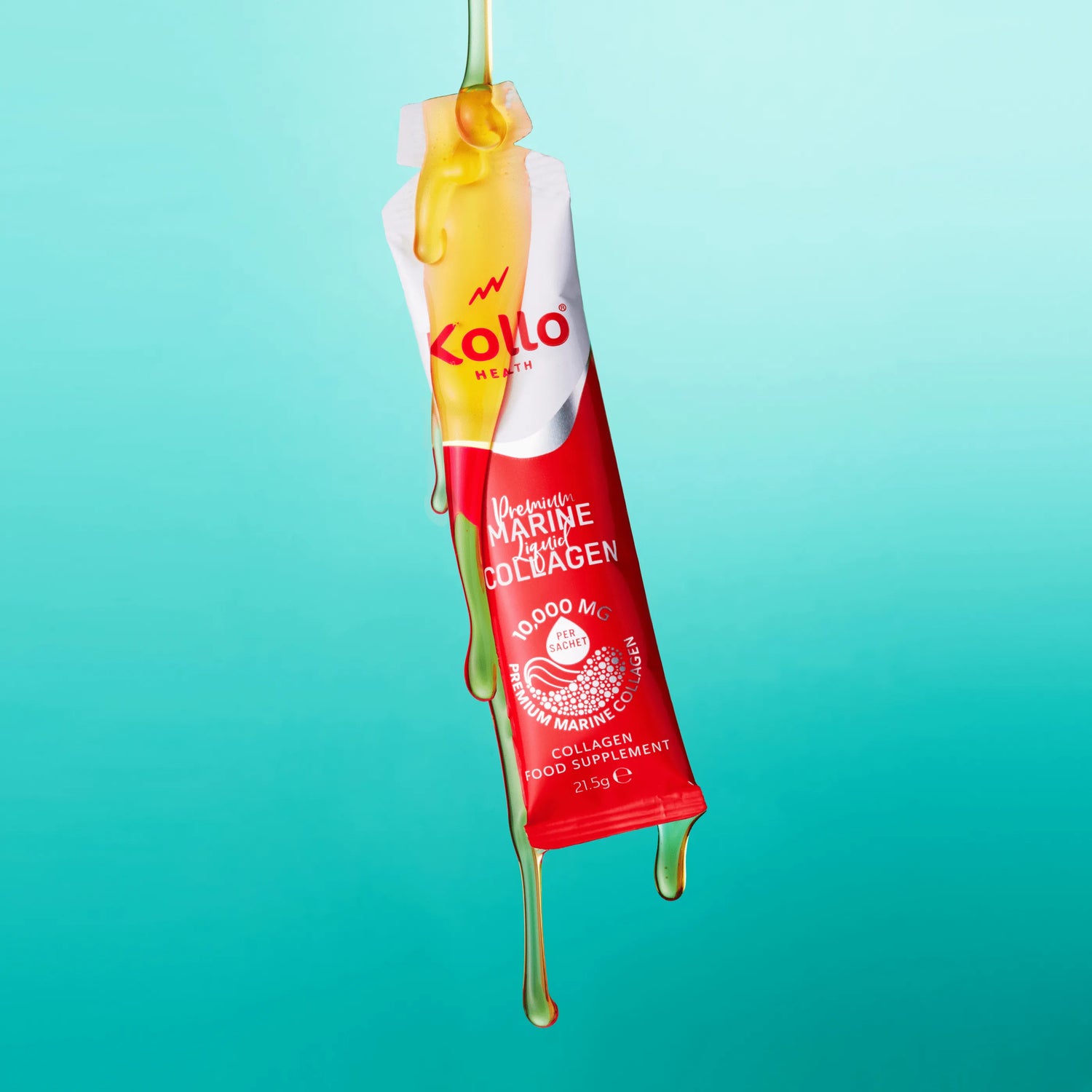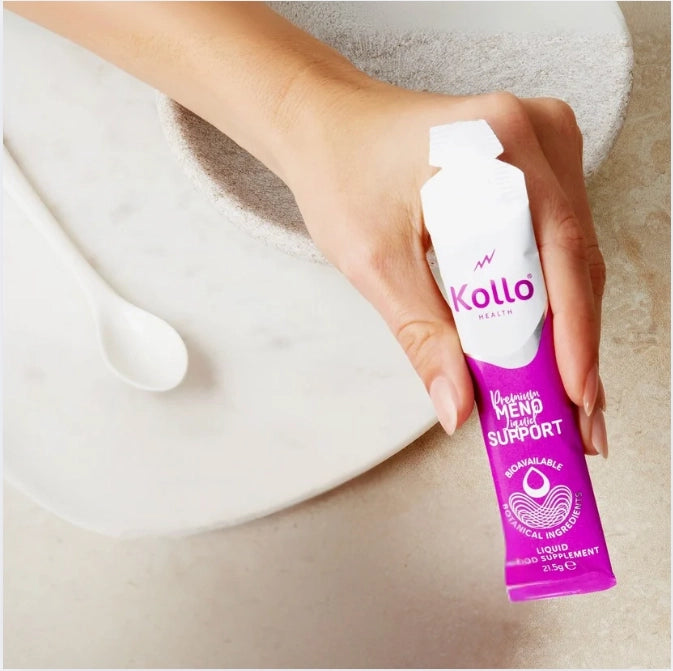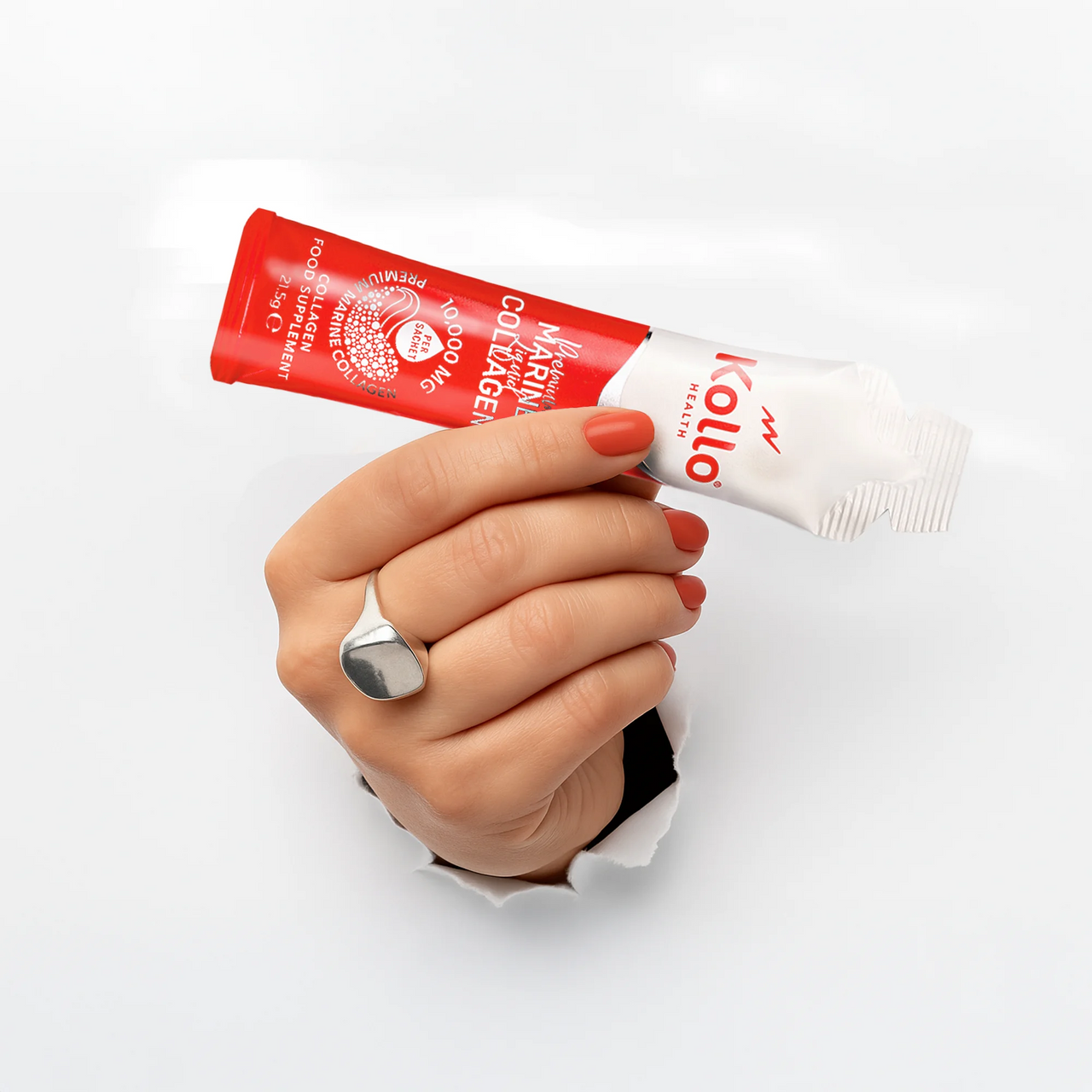Your skin is like a well-built house; collagen is like the foundation and scaffolding holding it up. Without enough scaffolding, the house weakens, leading to slow repairs and visible damage. Similarly, without enough collagen, your wounds take longer to heal and may leave noticeable scars.
You may say, but isn’t collagen for hair and skin? While yes it is, that’s not the only benefit. Follow along as Kollo Health explores how collagen speeds up wound healing.
Introduction
Collagen is a natural substance in your body that speeds up wound healing, reduces scarring, and improves skin health. Understanding the role of collagen in wound healing can help us unlock the secrets to quicker recovery from injuries. This vital protein in our bodies plays a crucial role in the wound-healing process.
From cuts and scrapes to serious injuries, collagen supports tissue repair and regeneration. At Kollo Health, we recognise the benefits of liquid collagen in promoting quicker, more effective healing. Our marine collagen 10,000mg supplement supports your body's natural healing abilities.
Understanding Collagen

Collagen is the most abundant protein in the human body, found in skin, bones, tendons, and ligaments. It provides structure, strength, and elasticity to these tissues. When you sustain an injury, collagen fibres form a scaffold at the wound site, guiding the wound-healing process. Collagen is essential for forming new tissue and repairing those damaged areas.
Type I Collagen: Skin Regeneration
Type I collagen is the most common form found in the skin, making up about 80% of the total collagen content. It provides tensile strength and stability to the wound site, aiding in the formation of a durable scar. This collagen type is crucial for skin regeneration, especially in chronic wounds, burns, and surgical incisions.
Type II Collagen: Joint and Cartilage Support
Primarily found in cartilage, Type II collagen is vital for joint health. While it isn't a major player in skin wound healing, it's essential for the repair and maintenance of cartilage. This type of collagen is crucial for people with joint issues or cartilage damage.
Type III Collagen: Early Healing Phase
Type III collagen is important in the early stages of wound healing. It creates a soft, flexible framework that helps cells move and form new tissue. This initial support is crucial for the wound to heal correctly.
Type IV Collagen: Basement Membrane Support
Type IV collagen is found in the basement membrane, a thin layer under the skin and other tissues. It supports cells and controls how molecules move between tissues. In wound healing, this type of collagen helps epithelial cells attach and move, which is vital for forming new skin and blood vessels.
"Epithelial" refers to tissue covering the surfaces of organs, glands, and body structures, both inside and outside the body. It’s tightly packed and acts as a protective barrier. These cells play a critical role in closing wounds and restoring skin integrity or other affected tissues.
The Decline of Collagen Production
Our bodies naturally produce collagen, but production decreases with age. This decline can slow wound healing, leading to delayed or incomplete healing. That's why collagen supplements are beneficial. They provide the body with the building blocks needed for collagen synthesis, promoting faster and more efficient healing.
What Does Collagen Do?
Collagen plays several roles in maintaining our health. It supports skin regeneration, joint health, and muscle repair. Collagen is vital for athletes as it helps repair damaged muscle fibres after exercise. Additionally, collagen provides cushioning to the joints, promoting flexible movement and reducing the risk of injury.
Collagen is crucial in healing wounds because it forms the extracellular matrix (ECM). The ECM is a complex network of proteins and other molecules that surrounds and supports the cells within tissues and organs. It provides structural and biochemical support to the surrounding cells. The ECM is crucial in processes like wound healing, where it helps regulate cell growth and aids tissue repair and regeneration.
Without enough collagen, wounds would heal slowly, if at all. Collagen is needed to form granulation tissue, which fills the wound and promotes healing. It also provides tensile strength to the healing tissue, allowing it to withstand stress and regain normal function.
Collagen dressings are a type of wound dressing that uses collagen and is an effective way to support healing. They maintain a moist wound environment, promoting optimal healing conditions. They can also be combined with other substances, like silver, to provide antimicrobial properties. By using collagen dressings, we can enhance the body's natural healing process and achieve better outcomes for patients with chronic, surgical, and traumatic wounds.
The Role of Collagen in the Wound Healing Process

The wound-healing process is a complex series of events involving cells, growth factors, and the ECM. Collagen plays a pivotal role in every stage of this process, from hemostasis, the body's process of stopping bleeding at the site of an injury, to remodelling, the final phase of the healing process.
Understanding how collagen functions during each phase can help us appreciate its importance in wound management. Let's uncover the details of each step of collagen within wound healing.
Hemostasis
Hemostasis is the first stage of the wound-healing process. When a wound occurs, the body quickly works to stop the bleeding. Platelets release clotting factors, leading to the formation of a fibrin clot.
Collagen fibres provide a scaffold for platelet adhesion and aggregation and aid in clotting. This initial response is crucial for preventing further blood loss and creating a stable environment for the following stages of healing. By forming a structural framework, collagen ensures the wound is prepared for additional repair and regeneration.
Inflammation
The inflammatory phase is characterised by the arrival of white blood cells at the wound site. These cells clear debris and prevent infection. Collagen regulates the inflammatory response and recruits immune cells to the area.
During this phase, the wound environment is very active. Various cells and molecules work together to prepare for tissue repair. Collagen's presence helps control inflammation so it doesn't become excessive and hinder healing. Proper management of this phase is vital for successful wound healing and the formation of healthy granulation tissue.
Proliferation
During the proliferative phase, new tissue grows to replace the damaged area. Fibroblasts cells that make collagen and other tissue fibres move to the wound site. Growth factors encourage them to produce collagen, which helps form a temporary structure called granulation tissue. Type III collagen is crucial here because it helps start the granulation tissue, supporting new cell growth.
Type IV collagen also helps create new blood vessels, which deliver nutrients and oxygen to the healing tissue. As the new tissue develops, it gradually covers the wound, making it smaller. Collagen is vital as a support structure in this phase, aiding cell growth and tissue formation. This process ensures the wound heals well, effectively restoring the damaged area.
Remodelling
Remodelling is the final phase of wound closure. During this stage, the provisional matrix formed in the earlier phases is reorganised into mature tissue. Enzymes break down excess collagen, and Type I collagen provides tensile strength to the scar tissue.
This phase can last several months as the tissue slowly regains its normal structure and function. Collagen's presence is essential for ensuring that new tissue is strong and resilient. Proper remodelling reduces the risk of wound reopening and helps achieve a more aesthetically pleasing scar.
Collagen Wound Dressings
Collagen wound dressings are powerful tools in wound management. They maintain a moist environment, which is ideal for healing. They're used on various wounds, including chronic, surgical, and burn wounds.
Collagen dressings work by absorbing oozing wound fluids and providing a structure for new tissue growth. They can also be combined with other substances to enhance their antimicrobial properties. We can support the body's natural healing process by using collagen-based wound dressings. These dressings also promote tissue regeneration and improve outcomes for patients with various types of wounds.
Conclusion
Collagen is a cornerstone of wound healing. Its role in forming the ECM, supporting cell growth, and providing tensile strength makes it essential for effective healing. Our natural collagen production declines as we age, leading to slower wound healing and an increased risk of chronic wounds. This is where multivitamins with collagen supplements, like Kollo Health's marine collagen 10,000mg, come into play.
The benefits of liquid collagen are numerous. It supports wound healing and promotes skin regeneration, joint health, and overall well-being. Don't let slow wound healing hold you back. Adding collagen supplements to your health routine can help ensure your body has the building blocks for tissue repair and regeneration.
Visit Kollo Health today and discover the difference marine collagen can make in your life. Who should take collagen supplements? Anybody who is at an age where collagen production has declined. With our collagen supplements, you’ll support your body's natural healing process and enjoy the benefits of healthier, stronger skin, joints, and tissues. Shop now and take the first step towards better health and faster healing.







